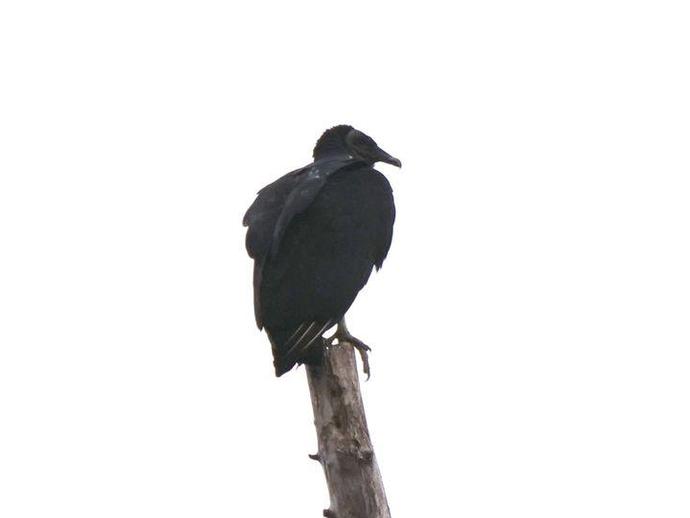December 16, 2021
It's time for the Thursday edition of #BenInNature presented by our friends at Carter Bank & Trust!
The black vulture (Coragyps atratus) is one of two species of New World vulture that you'll find here in Virginia, the other one being the turkey vulture (Cathartes aura). There is also a third vulture you can find in the U.S. -- the California condor (Gymnogyps californianus). You're not going to spot one of those in Virginia, though!
Compared to the turkey vulture, the black vulture has a much more restricted range here in the U.S.; while turkey vultures range all the way into Canada, black vultures are generally limited to the southeastern U.S. They have a huge southerly range, however, and are the most numerous vulture in the Western Hemisphere.
It's sometimes hard to tell the difference between a black vulture and a turkey vulture if you can't get a good look at the head (turkey vultures have reddish heads, while black vultures have black heads). In flight, black vultures are the more compact of the two, with shorter tails and broad wings.
Interestingly enough, black vultures rely on turkey vultures to a large extent. While turkey vultures have an excellent sense of smell, black vultures do not. To find food, black vultures fly high in the sky where they can keep an eye on the lower-soaring turkey vultures. When the black vultures see the turkey vultures zeroing in on a carcass they've smelled, they follow the turkey vultures to the scene!
While turkey vultures will often forage by themselves, black vultures tend to forage for food in flocks, and they can easily drive a turkey vulture away from a carcass just through strength in numbers. When they're not feeding, however, the two species don't seem to hold any hard feelings; they can often be spotted roosting together.
ABOUT #BenInNature
Social distancing can be difficult, but it presents a great opportunity to become reacquainted with nature. In this series of posts, Administrator of Science Ben Williams ventures outdoors to record a snapshot of the unique sights that can be found in the natural world. New updates are posted Monday - Friday, with previous posts highlighted on the weekends. This series of posts is made possible thanks to the support of VMNH Corporate Partner Carter Bank & Trust (www.cbtcares.com).
NATURE PHOTO IDENTIFICATIONS
If you discover something in nature that you would like help identifying, be sure to message us right here on Facebook with a picture (please include location and date of picture) and we'll have our experts help you identify it!

 Hours & Admissions
Hours & Admissions Directions
Directions

